How to make RSO from an Alcohol Tincture
RSO, or Rick Simpson Oil, is a type of full extract concentrated cannabis oil that has gained attention for its potential therapeutic uses. Named after Rick Simpson, a Canadian medical marijuana activist, RSO is made through a specific extraction process that results in a thick, potent oil containing a full spectrum of cannabinoids and terpenes found in the cannabis plant. Unlike other cannabis oils that may focus on CBD (cannabidiol) or THC (tetrahydrocannabinol), RSO typically has a high concentration of THC. Simpson originally created the oil to treat his own skin cancer and (he) has since advocated its use for a variety of medical conditions.*
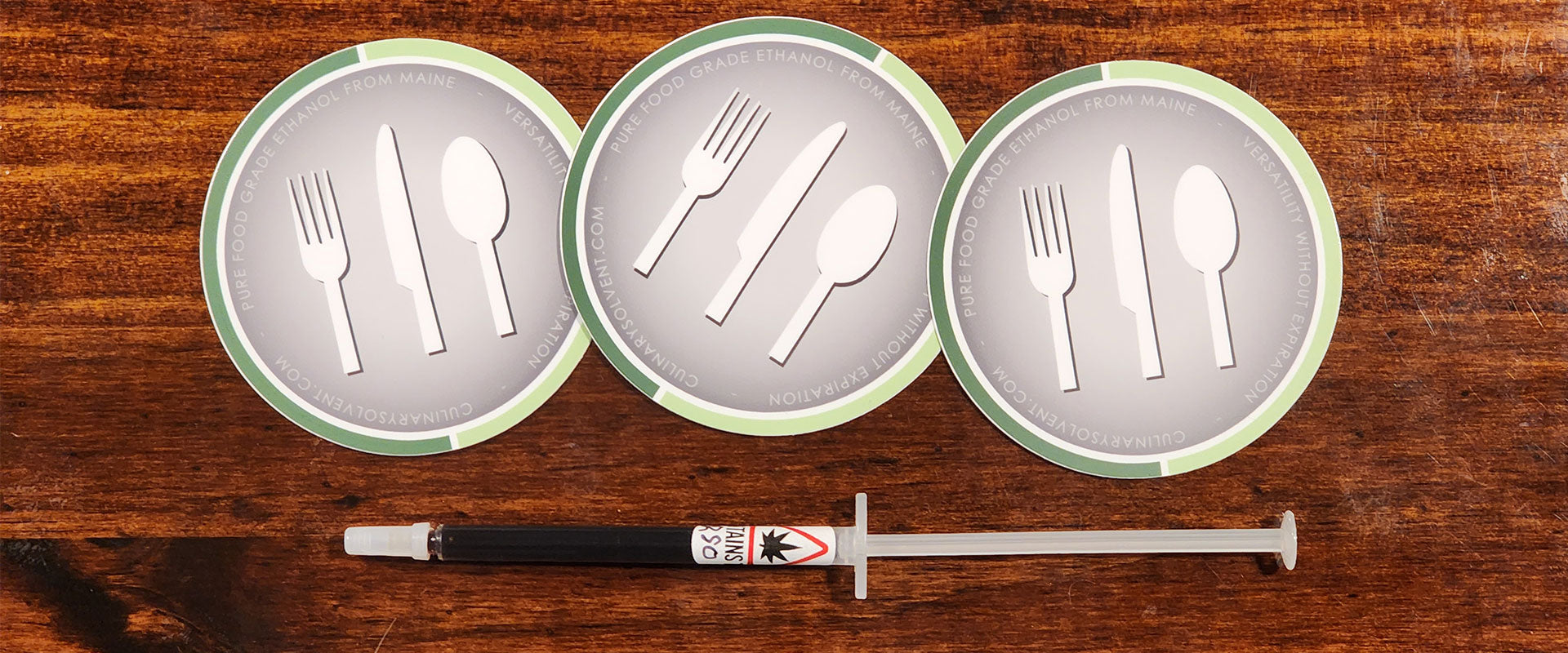
What is RSO?
RSO, or Rick Simpson Oil, is a highly concentrated form of full extract cannabis oil named after Rick Simpson, a Canadian who advocated for its use in treating various medical conditions, including cancer.
FECO vs RSO
FECO stands for "Full Extract Cannabis Oil". RSO is a type of FECO with tradition of using non-ethyl alcohol as the solvent. This RSO recipe was developed by Rick Simpson in an era when better alternatives, namely access to food grade ethanol as a solvent did not exist. In 2024, with access to online suppliers of food grade ethanol, RSO recipes should always and only be made with food grade ethyl alcohol (ethanol).
What is in RSO?
RSO typically contains a high concentration (over 60%) of cannabinoids in addition to the naturally occurring hemp waxes, plant oils, and other plant constituents like chlorophyll. The spectrum of cannabinoids in a batch of RSO will be determined by the strain of the cannabis plant used during the tincture-extraction phase. Finished RSO will typically contain a small amount of residual alcohol, usually representing 1% or less of total volume. This residual alcohol is low enough that it cannot be tasted, nor will it affect the RSO if smoked, but remains as a means of keeping the final product in a gooey phase that can be dispensed using a standard oral syringe.
Choosing the Solvent for RSO: Ethanol vs Other Solvents
Not all alcohols are created equal! And not all solvents are food safe like pure ethyl alcohol (ethanol). Be aware when choosing the alcohol to use to make RSO, avoid toxic solvents like isopropyl "rubbing alcohol", mineral spirits, denatured alcohol blends, or any hydrocarbon derived solvent like butane, propane, pentane.
TLDR: Only ethyl alcohol (ethanol) is safe for making RSO or FECO!
200 Proof vs 190 Proof for RSO
Solvents chosen for RSO recipes should not contain any water. The more water in solution (Everclear 151 contains 25% water!), the longer the evaporation stage to reach concentrated oil will take. This added time required to evaporate will typically result in a very dark final oil that has been over decarboxylated which can have significant affects on the final "feel" of the RSO. Look for solvents that state "0% water" or are listed as "200 Proof". More information about 190 proof vs 200 proof for alcohol tinctures.
Ethyl Alcohol - Ethyl alcohol is the best, safest, most effective option for alcohol when making RSO. Sometime available at local retails in concentrations as high as 95% ABV (190 proof), however many states including California, Florida, Ohio, Pennsylvania, North Carolina, and Maine currently restrict the strength available at local liquor stores to 151 Proof (75.5% ABV). Thankfully, reputable online retailers of pure 200 proof food grade alcohol have emerged to fill this need for a high-proof food safe solvent while, while also abiding by the individual state rules and regulations for alcohol. If you live in one of the states listed above, you are able to purchase 200 proof pure food grade alcohol without worry of additional permits, regulations, or license fees. What to do: Source only pure 200 proof food grade ethanol when making tinctures, or concentrates including RSO/FECO.
Naphtha - The original solvent used by Rick Simpson in the early 90's when he was developing his recipe and process for making a concentrated oil from cannabis, with his intention of topical application only to his skin. This choice to use naphtha was made when other, better, solvents like pure food grade ethanol were not available for purchase, so he went to the drawing board and returned with naphtha as his recommendation. RSO made with naphtha can still contain small (0.5%-2%) concentration of the solvent dissolved into the oil, which can create additional health concerns due to the toxicity of naphtha if the RSO is consumed orally vs topically. What to do: Avoid naphtha as an ingredient when making RSO.
Isopropyl "Rubbing" Alcohol - While generally more available for purchase at high ABV concentrations ranging from 70% - 90%, isopropyl alcohol will dissolve cannabinoids similarly to ethanol. However, as mentioned before that not alcohols are created equal, isopropyl alcohol is toxic if consumed and should not be used to make RSO. What to do: Avoid isopropyl alcohol as an ingredient when making RSO.
Step-by-Step RSO Recipe from Alcohol Tincture
- Make a tincture using cannabis and pure food grade ethyl alcohol. Tinctures used for RSO are typically long-soak full extractions where the tincture sits for 1 day +, however great RSO can be made with a quick wash tincture as well. Understand that this stage is extracting everything from the plant, to be left behind when the alcohol evaporates, nothing is being "created" during extraction, if your plant is a low strength strain, this will be reflected in your final RSO concentrate.
- Transfer tincture to an evaporation device, see below description of suggested devices. Always use caution and take necessary preparation methods for risk of fire whenever mixing heat and flammable liquids like 200 proof alcohol. Never make RSO in your kitchen on the stove with a window open for ventilation. Different options and methods for reducing alcohol in your tincture to make concentrated oil are discussed in the next section.
- Reduce alcohol in solution, gradually resulting in a thick concentrated oil.
- Transfer concentrate into a jar or oral syringe.
- Clean up. Get ready for a sticky, stinky mess on your hands, but rest assured that some extra solvent left over will quickly and easily clean up any tools, pans, pots, utensils or other components that need to be cleaned. Any RSO dissolved back into the alcohol used for cleaning can be retained and reevaporated in a next run.
Methods of Reducing Alcohol Content in you Tincture.
To make RSO, you must remove the alcohol from the tincture, while also leaving behind the cannabinoids which will form a think sticky oil like concentrate. There are a number of different methods that can be used to reduce the alcohol present in a tincture, each with it's own pros, cons, advantages, disadvantages, draw backs, caveats, and warnings. Read the descriptions of the different methods below and choose the right method for your given situation and surroundings. Always use extreme care and caution when combining a heat source with flammable vapors.
Crock Pot / Rice Cooker.
A common counter top crockpot or rice cooker can be used to indirectly heat the tincture containing liquid, where by the added heat can dramatically increase the rate of evaporation.
Warnings: Never use indoors.
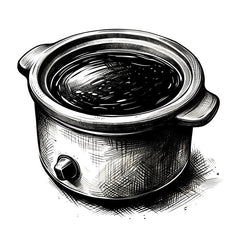
Stove Top / Double boiler
This setup places tincture in a separate bowl over a pot of boiling water, whereby the heat is transferred to the tincture indirectly by contact with the layer of steam only. This gentle heating method is favored by chefs for control-warming delicate ingredients like chocolate. While the heat applied is indirect, double boiler setups are always setup indoors and over a direct heat source which still introduces concern for safety. Fume ventilation during double boiler evaporation must also be taken into account.
Pros: Cheap and easy to setup with pots and metal bowels you already have, slow and controlled application of heat via indirect steam.
Cons: Fume and fire hazard with indoor operation. Spill risk. Strong, lingering odor.
Warnings: Flame and fume hazards.
Electric Hot Plate
Available in many sizes, the power output is generally proportional to the surface area of warming surface offered. Hot plates come in a variety of strengths including mug warmers, all the way up to stove-top burner equivalents. Hot plates can quickly increase the temperature of a liquid, and without a careful eye can burn or scorch the reduced concentrate leading to over-decarboxylation. Quickly evaporating alcohol tincture can also create fumes that must be properly vented away from people or sources of ignition.
Pros: Low power reduces risk of over decarboxylated final concentrate. No standard model.
Cons: Requires electricity, creates fumes and vapors that must be contained and vented properly. Risk of over-decarboxylation.
Warnings: Hot plates can apply too much heat, and too quickly, and should not be used for reducing alcohol tincture into RSO.
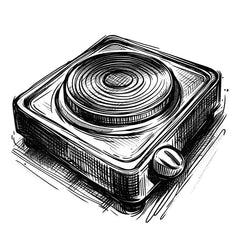
"Cold" Forced Air Flow Evaporation
You might already know this but left alone for enough time and 200 proof alcohol will naturally evaporate away. When it evaporates away, it leaves behind any dissolved oils, waxes, and other constituents that were extracted during the tincture making step. Natural cold air evaporation is slow, however the rate of natural evaporation can be maximized by introducing lots of fresh air to the party.
Cons: Slow. Expect 8fl oz of alcohol tincture made with 200 proof ethanol to take 24-48 hours to fully evaporate under room temperature forced airflow.

Counter-Top Home Water Distiller
These devices are designed for distilling water, not 200 proof ethanol, and especially not flammable liquids. Never use a water distiller to reduce the alcohol in your alcohol tincture.
RSO Devices - Magic Butter Machine, The Source Turbo, others.
These devices work, they work well, and they each have their own audience and followers. We've heard many customers ask if Culinary Solvent works in their Magic Butter Machine or Source Turbo and the answer is "Yes". If you have experience tincturing and extracting with 190 proof Everclear, you will notice the difference in extraction and reclaim rate made possible with 200 proof ethanol.
What does RSO look like?
RSO can be described as a thick, semi-viscous oil that resembles Vaseline or honey, but intensely black throughout caused by the over-oxidization of chlorophyll present from the full extract soak process. RSO made from hemp derived CBD will look indistinguishable from RSO made using cannabis-derived THC.
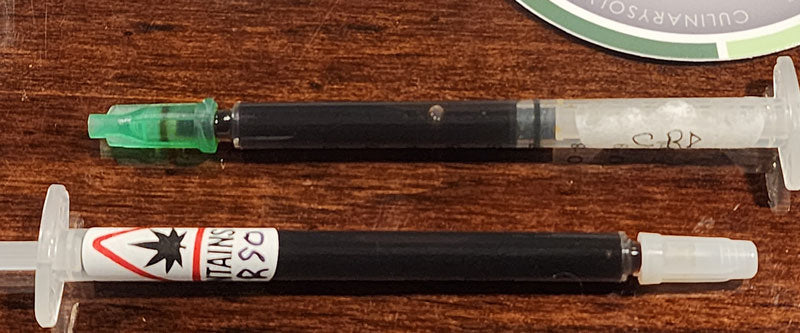
Why is RSO always dark black?
The dark black characteristic of RSO can be attributed to the full extract long soak of all the cannabis plant's leaves, buds, stems, and stalk. Chlorophyll is very soluble in 200 proof ethanol and will readily absorb into the tincture solution. During the evaporation phase, chlorophyll will oxidize from green to golden brown. If you look at good quality RSO in front of a light, you will see the dark black oil reveal a light brown-amber hue. RSO should be translucent, should not contain chunks or particles when observed through a backlight.
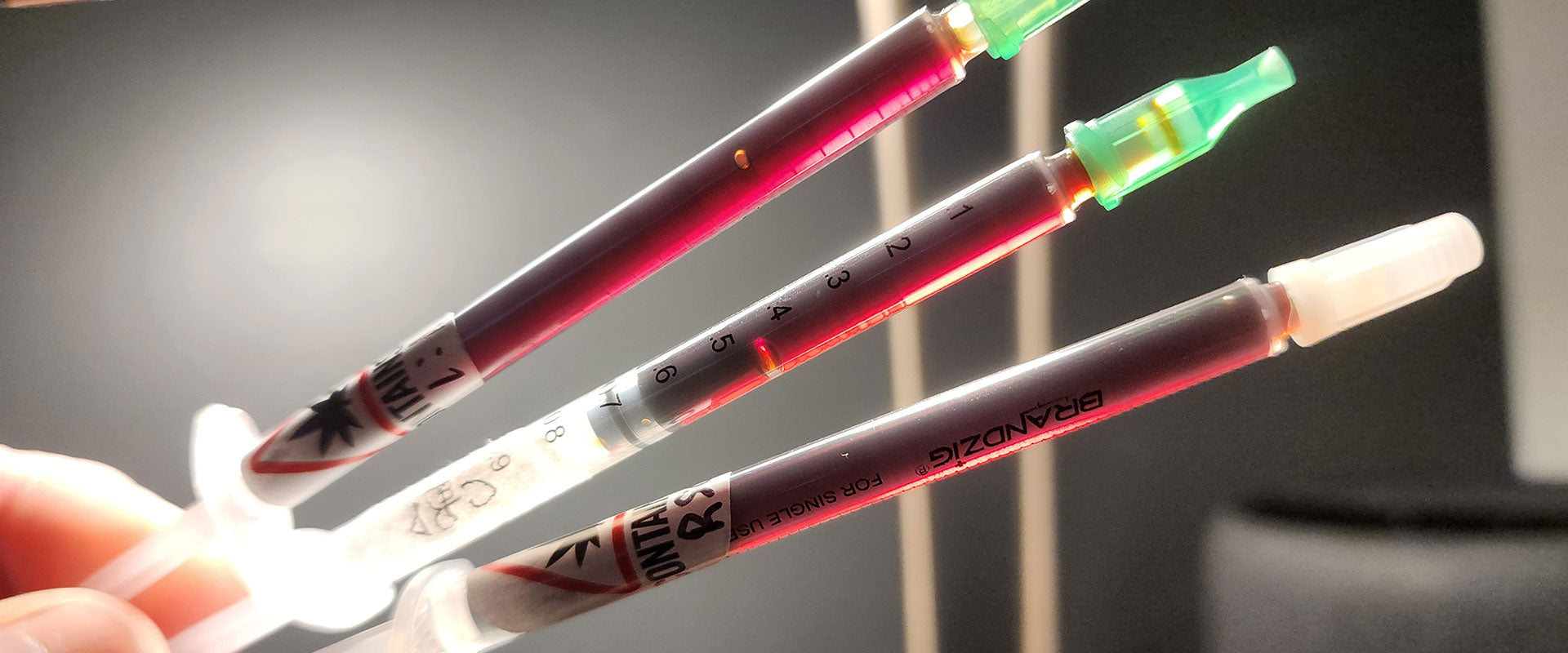
What does RSO taste like?
RSO will taste strongly of cannabis / hemp, earthy, plant like, with a hint of bitter-char as a base. Most terpenes from the original plant will not be present, as these volatile molecules are unable to survive the extended high-temperature environments caused by most common means of evaporation. The strain of your original cannabis or hemp plant will impart its own signature characteristics into the final RSO taste profile.
How is RSO used?
RSO is a versatile form of cannabis concentrate that can be applied topically, consumed orally, inhaled as a vapor or a smoke. Most people however choose to consume RSO either orally or topically.
Does RSO need to be decarboxylated?
If the evaporation step incorporates heat at any stage, the RSO is already decarboxylated and does not require further heat or time to activate the cannabinoids contained within. RSO evaporated with the cold forced air method above may need to be further decarboxylated if the cannabis used was not decarboxylated before the infusion step. This allows for RSO featuring the acid forms of cannabinoids not typically available using evaporation methods involving heat.
Disclaimer, no medical claims, or advice
*CulinarySolvent.com does not make any medical claims regarding the potential therapeutic uses of RSO (Rick Simpson Oil) or any other products mentioned on our website. The content provided is for informational purposes only and is not intended as medical advice, nor does it substitute for professional medical guidance or treatment. Rick Simpson Oil and its uses are described based on publicly available information and should not be construed as endorsed or medically reviewed by CulinarySolvent.com.
Check the rules for concentrates in your locality.
We emphasize that the legality of RSO, cannabis, and cannabis-derived products, including the process of concentrating cannabis flower into oil, varies significantly by jurisdiction. Before considering the use or production of RSO or similar products, we strongly advise our visitors to consult and adhere to the rules and regulations of their local area.
We urge all visitors to consult with a qualified healthcare professional before considering the use of RSO or any cannabis-derived products for medical purposes. It is the responsibility of our visitors to be aware of and comply with their local laws regarding cannabis and cannabis-derived products.








